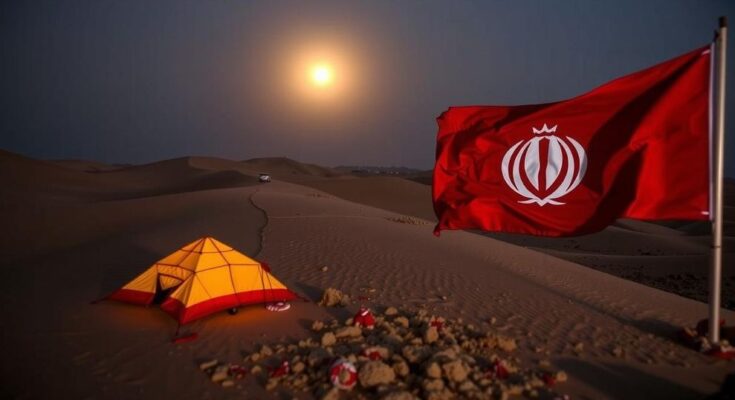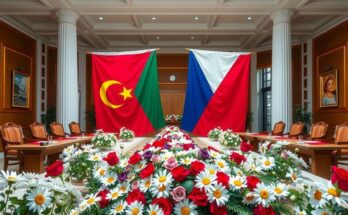The article discusses the implications of a potential reestablishment of US-Morocco relations under President-elect Donald Trump. It highlights Trump’s previous acknowledgment of Morocco’s sovereignty over Western Sahara, and the strategic challenge posed by Iran’s backing of the Polisario Front. The piece emphasizes the need for a renewed commitment to enhance security and economic ties, positioning Morocco as a vital ally in countering Iranian ambitions in North Africa.
The prospect of renewed relations between the US and Morocco under President-elect Donald Trump presents strategic opportunities, particularly regarding the contentious issue of Western Sahara. During his previous term, Trump acknowledged Morocco’s sovereignty over this disputed area, a gesture appreciated by King Mohamed VI, who emphasized the historic friendship between the two nations. The expectation among Moroccan officials is for the new administration to counter the perceived indecisiveness of the Biden administration and provide strong support for Morocco’s claims in the region.
The landscape following the normalization of ties between Morocco and Israel complicates the situation, particularly with the recent conflict in Gaza prompting heightened internal sentiment surrounding Palestinian rights. Although Morocco maintains that its relationship with Israel is not an affront to Palestinian aspirations, the influence of Iranian-backed groups, like the Polisario Front in Western Sahara, poses a significant threat to stability in the region. The growing concern among Moroccan authorities regarding possible Iranian encroachment reinforces the necessity for a solid partnership with the US.
Amidst the backdrop of a realigned international stance, particularly among European allies such as Spain and France, the US-Morocco relationship holds critical implications for regional security. The prospect of enhanced economic cooperation through initiatives like the Dakhla harbor megaproject represents both a strategic advantage in countering Iranian influence and an opportunity for increased US investment.
The circumstances surrounding the Western Sahara conflict, along with the need for a more proactive approach from the US, create an imperative for the new administration. By fortifying ties with Morocco and encouraging stability in the Sahara, the US could not only impede Iranian ambitions but also pave avenues for robust economic partnerships. The urgency of addressing this long-standing conflict is magnified by the potential ramifications for broader geopolitical dynamics throughout North Africa and the Sahel.
In conclusion, establishing a renewed commitment to US-Moroccan relations under the incoming Trump administration is essential for addressing Iranian influence in Western Sahara while unlocking significant economic and strategic opportunities. As Morocco navigates complex regional sentiments, the US’s support can significantly influence the trajectory of stability and growth in the region, reaffirming long-held alliances against common threats.
The ongoing conflict over Western Sahara has been a contentious issue for decades, primarily involving Morocco’s claim to the territory versus the aspirations of the Polisario Front, a pro-independence group supported by Algeria and Iran. In recent years, geopolitical dynamics have shifted, particularly with Morocco’s normalization of relations with Israel. This development raised concerns about Iranian-backed groups gaining influence in the region, thereby destabilizing North Africa and the Sahel. The need for clear and decisive US leadership in supporting Moroccan sovereignty has become increasingly pronounced amid these changing circumstances.
In summary, the new Trump administration has a vital opportunity to strengthen US-Moroccan relations, focusing on the Western Sahara conflict as a strategic priority. By reinvigorating this partnership, the US can help counter Iranian influence in the Sahel while fostering economic growth through investments in Morocco. The situation not only holds potential benefits for US interests but also encourages regional stability, which is essential in the face of rising geopolitical tensions.
Original Source: www.atlanticcouncil.org




